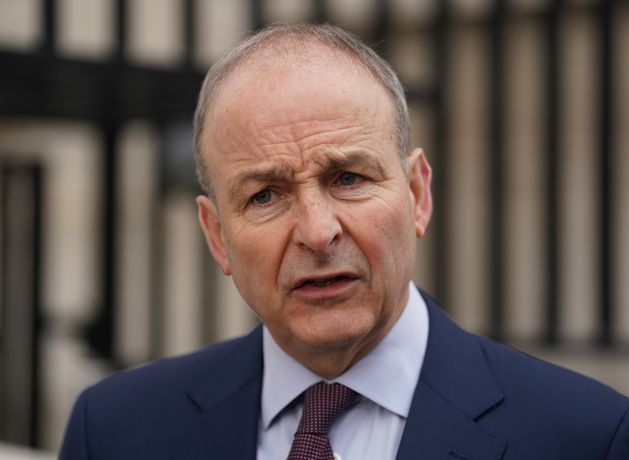Troubling as that might be, just as perplexing is the strong support the US president is getting at home. This is being provided by voters either unaware of, or indifferent to, the potential dangers of burning bridges with allies.
As trade wars threaten on all fronts with the potential to harm the international economy, Trump has doubled down on his plan for US “ownership” of war-torn Gaza.
He has asserted that Palestinians would have no right to return under his plan.
Apart from the fact that the idea has been universally rejected, it is also illegal under international law. His latest remarks came in an explosive interview with Fox’s Bret Baier.
Previously, Trump has said the US will turn Gaza “into a very good site for future development by somebody”, adding that “people can come from all over the world” and live there.
The comment drew a caustic response from Tom Fletcher, the UN humanitarian chief. “It’s strange at the moment to be in a period when statecraft seems to have been replaced by real-estate craft,” he remarked.
With Gaza ceasefire talks entering a critical second stage, simmering tensions do not need to be stoked.
Similarly , Trump’s proposals to make Canada the 51st state, or to annex Greenland, can only be taken as an insult to the international order.
After World War II, the US policy of Atlanticism helped get a crippled global economy back on its feet.
America and the world prospered as the era of closer co-operation resulted in the formation of the United Nations and Nato. With US encouragement, it also led to the formation of the European Coal and Steel Community, which would evolve into the common market and eventually the EU.
Today, the EU and America enjoy the most integrated economic relationship in the world. Brussels has said it would react to protect EU interests should Trump impose tariffs.
Taoiseach Micheál Martin flew to Brussels for talks with EU leaders yesterday. He is mindful of the potential damage tariffs could inflict.
Having one of the most open economies in Europe, Ireland would be especially vulnerable to a trade war, or any gambit the Trump administration might employ, in order to attack European tax regimes.
As John F Kennedy once noted: “The purpose of foreign policy is not to provide an outlet for our own sentiments of hope or indignation; it is to shape real events in a real world.”
Detecting any pattern of diplomacy in Trump’s dealings with allies is becoming increasingly difficult. Global leaders face a challenge that is best approached on a united footing.
